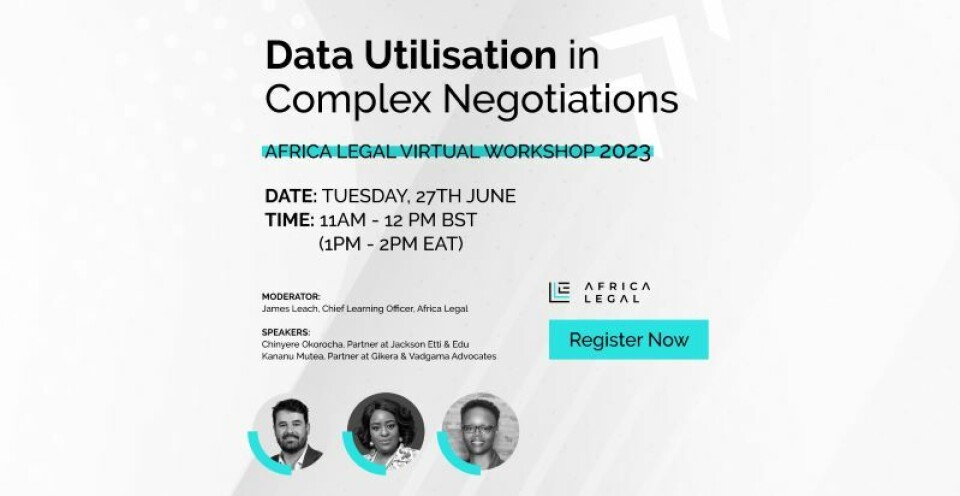In today's complex legal environment, data is more important than ever before. It can be used to support your arguments, identify potential risks and develop creative solutions. However, not all data is created equal.
Poor quality or inaccurate data – especially data that’s out of date – doesn’t help you at all when you’re negotiating, and can negatively impact the client’s interests. Good quality, up to date data is an essential tool in all negotiations, and it has a number of benefits in complex legal negotiations:
- Good quality data can help you make more accurate assessments of your situation and the potential outcomes of a negotiation. This can give you a significant advantage over your opponents.
- Good quality data can help you make better decisions about how to proceed with a negotiation. This can lead to more favourable outcomes for you and your clients.
- Good quality data can help you negotiate more efficiently because you will not have to spend time gathering and analysing unreliable or incomplete data.
- Good quality data can help you build credibility with your opponents because they will be more likely to trust your arguments if they are supported by reliable data.
- Good quality data enables you to leverage your knowledge and helps drive parties towards the negotiated solution you want.
There are a number of ways to ensure you are using good quality data. One is to use data from reputable sources, such as government agencies, industry associations, reputable research groups, and academic institutions. Another way is to collect your own data through surveys, interviews and focus groups.
Once you have collected your data, it’s important to analyse it carefully. This will help you identify trends, patterns and insights that can be used to support your arguments and develop creative solutions. You can then leverage this knowledge to strengthen your negotiating position and shift the power balance.
The African legal landscape is complex and constantly evolving, and by using good quality data, African negotiators can stay up to date on the latest developments in the law and make more informed decisions about how to proceed with their negotiations.
In an effort to help African legal practitioners better understand how to use data in complex negotiations, Africa Legal will be running a workshop on this topic. The workshop will cover specific issues like the skills needed to access and analyse data and how to ensure there is a “data-aware” culture in your firm. Experienced negotiators will explain how to focus on getting the most out of your negotiation plans using data, and what lawyers need to know in order to best leverage data to their advantage in negotiations.
To find out more and to register for the workshop click here. You might also be interested in taking our course on Business Communication for Lawyers: Honing Effective Cross-Cultural Communication Skills. For further details click here.
To join Africa Legal's mailing list please click here

